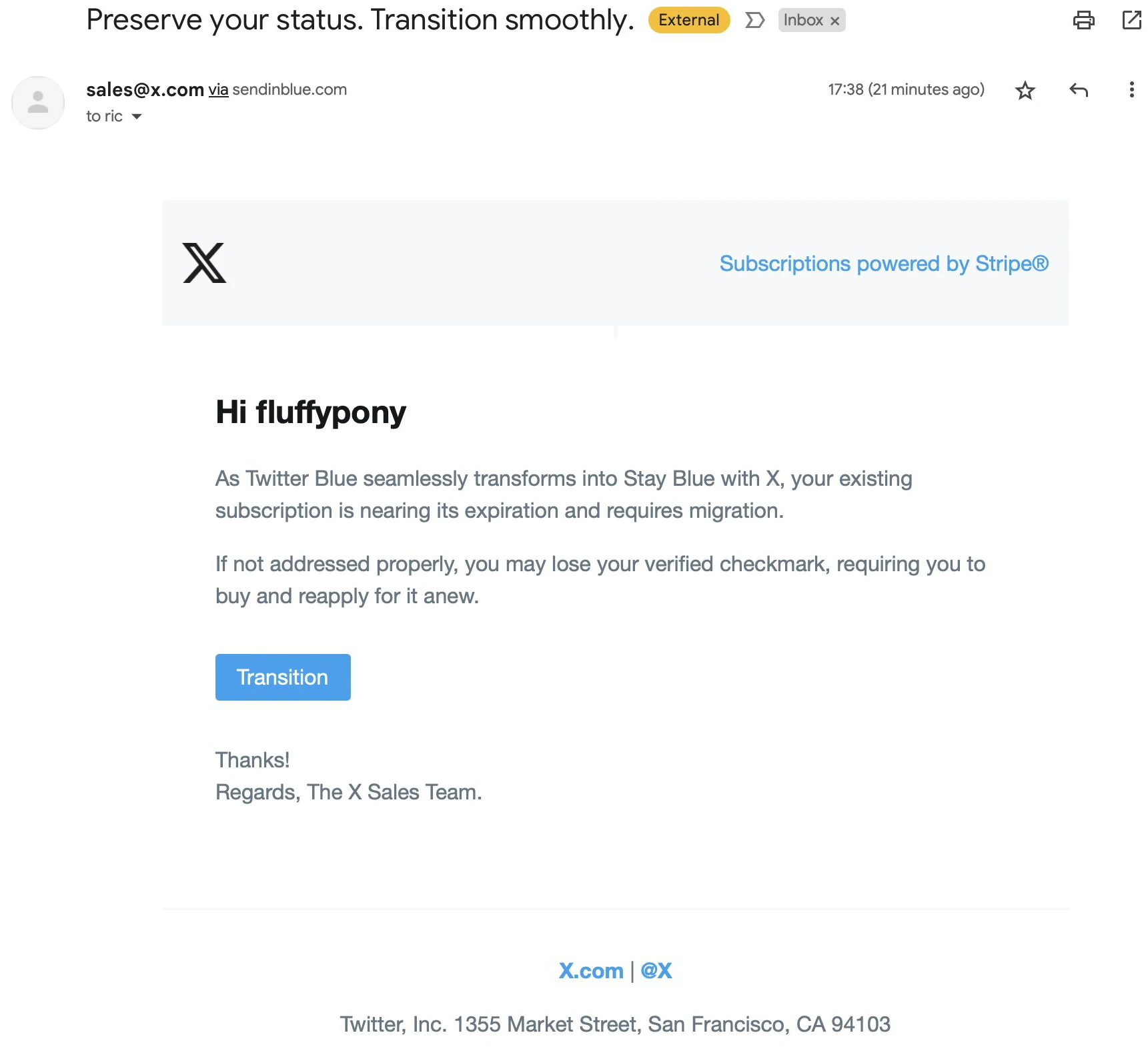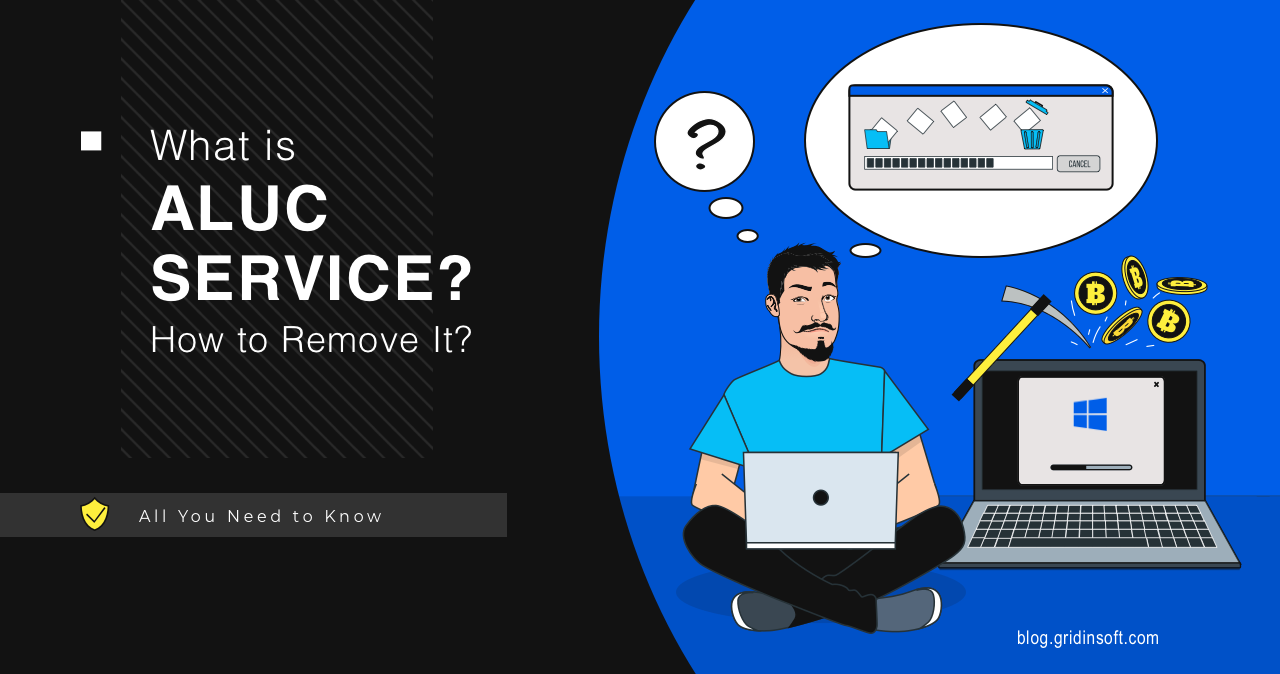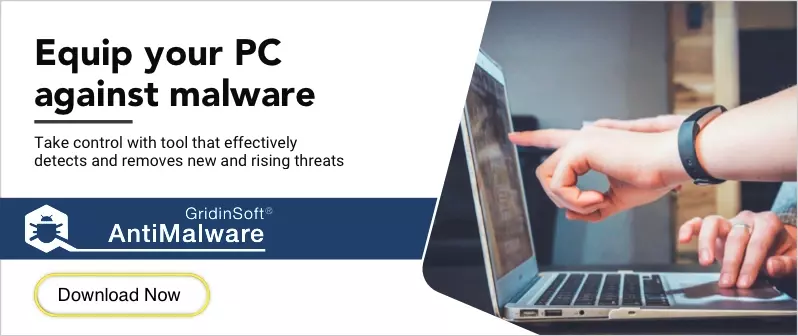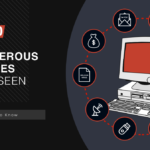Aluc Service is a strange service you can spectate in the Task Manager. It is, in fact, a malware-related process that hides behind a legitimately-looking name. Most commonly, such a trick is done by coin miner malware and rootkits.
What is Aluc Service?
At a glance, Aluc Appliaction may look like a legit service among hundreds of ones running in Windows. However, even a tiny bit of research shows that it is not something common. No programs among well-known ones have their service named in such a manner. Moreover, users commonly report that it consumes significant CPU power. This makes me assume that it is most likely related to coin miner malware activity.

But why would malware take the disguise of a service? Well, most malware does this trick – hooking up to a system service to make itself run without any permissions. The thing is, not much other malware takes as much CPU power as coin miners do. While a strange service launched by spyware will remain unnoticed, miners would not – quite an easy math here.
Aluc Service – Is It Dangerous?
The main issue coin miners like Aluc Service (or sometimes Aluc Appliaction)create is system overloading. Such pieces of software do not care whether you want to use your computer and what for – they will take 60-80% of your CPU power. Hackers provide a free mining farm by connecting hundreds and thousands of infected machines to a mining pool. Even though mining crypto on a CPU is inefficient, the amount of processors involved covers possible performance issues. Moreover, crooks commonly opt for coins with a less complicated blockchain, like Monero or DarkCoin.
However, an overloaded system is not a single issue here. Hackers who work with coin miners often use the services of dropper malware. That means you can have one more malware – or even several if other hackers used the same dropper to deliver their payloads. Possibly, there could be several other malicious things in your system, and they are much more stealthy than the coin miner is.
How did I get infected?
There could be a lot of possible ways of getting infected, but hackers commonly opt for a couple of the most cost- and effort-efficient methods. Among them are email spam, software cracks, and search results hijacking. Two former can spread pretty much any malware, while the latter is a common basis for multi-staged attacks. Trojan Droppers prefer to sneak as fake software installers, and then perform all the dirty deeds.

That being said, it is important to keep in mind that cybercriminals seek new opportunities pretty much constantly. Hackers adjust their attack campaigns correspondingly to the circumstances, so it is tough to know what you should be prepared for.
How to remove Aluc Service?
Removing such things manually is not the best idea. Malware that exploits service creation for persistence can sometimes protect them, so attempts to remove it by simply stopping & deleting may end up with a BSOD. Moreover, you can see the Aluc Service running, but can be missing all other threats present in your system. For that reason, a scan with a proper anti-malware program is recommended. GridinSoft Anti-Malware is an anti-malware program that will make this problem sorted in 10 minutes.
How to stay safe online?
Based on the spreading methods and injection approaches I mentioned before, it is not hard to create a list of effective ways to avoid malware infections.
Be cautious with email spam. There are several places to watch out for:
- Verify Sender. Never open email attachments or click on links in emails from unknown or suspicious senders. Verify the sender’s identity if you’re unsure.
- Check for Spelling and Grammar. Be wary of emails with poor grammar and spelling, as these are often red flags for phishing attempts.
Avoid Pop-Up Promotions. Don’t click on pop-up promotions or offers in emails, especially those that seem too good to be true.
Steer clear of software cracks. Their hazards are not only about malware but also about legal consequences for breaking the copyright law.
- Use Legitimate Sources. Only download software and applications from reputable sources and official websites. Avoid using cracked or pirated software, as these often come bundled with malware.
- Regularly Update Software. Keep your operating system, software, and antivirus programs up to date. Updates often include security patches that protect against vulnerabilities.
Protect against search engine hijacks. There, your attention and checkups are king.
- Avoid Clicking Search Result Ads. Google, along with other search engine providers, embeds advertisements at the top of its search results. As users tend to choose top results, they click promoted sites, without thought it may be a malicious link.
- Verify Search Results. Before clicking on a search result, review the URL and ensure it looks legitimate. Avoid clicking on suspicious links.
Employ anti-malware software. A well-done security solution, like GridinSoft Anti-Malware, will serve for both proactive and reactive protection.
- Install Reliable Security Software: Use a reputable antivirus and anti-malware program on your computer and keep it updated. Schedule regular scans of your system.
- Enable Real-Time Protection: Activate real-time protection features to prevent malware from executing on your system.






I have this on my pc and I ran GridinSoft, and while it cleared out many things, this crap stayed and refuses to leave/be detected. Everyone says that GridinSoft will clear it out, but it didn’t. What can I do???
Hello! Please, contact our support. They will instruct you on steps to resolve the issues with malware removal.